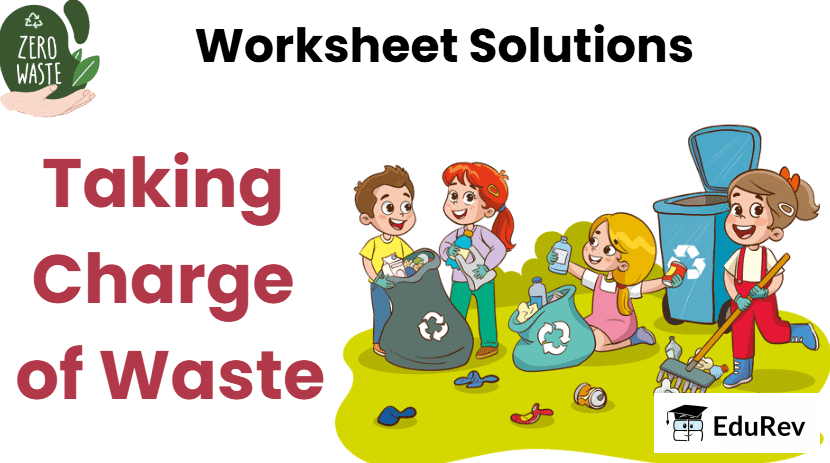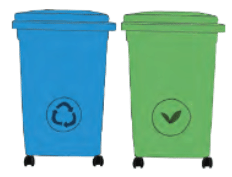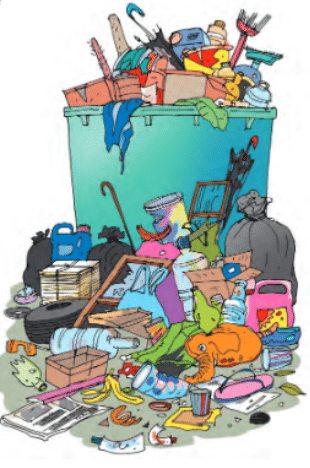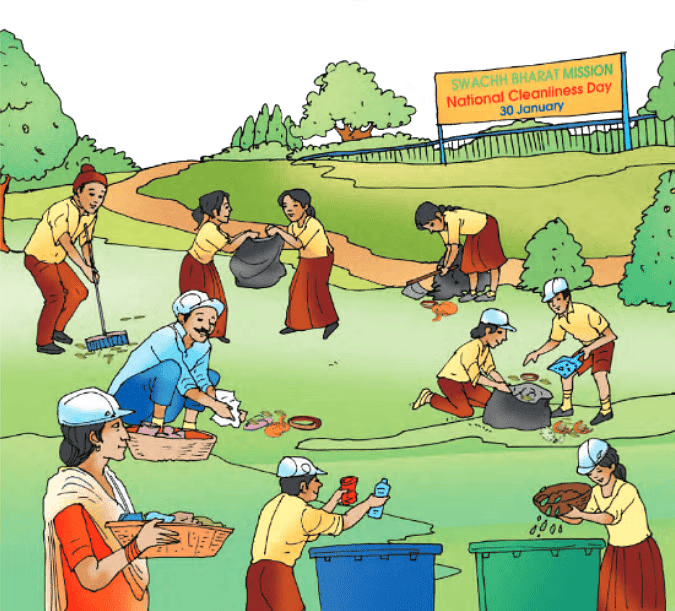Worksheet Solutions: Taking Charge of Waste | Worksheets with solutions for Class 3 PDF Download
| Table of contents |

|
| Multiple Choice Questions (MCQs) |

|
| Fill in the Blanks |

|
| True or False |

|
| Match the Following |

|
| One - Word Answer Type Questions |

|

Multiple Choice Questions (MCQs)
Q1: What is the first rule followed to reduce waste?(a) Reuse
(b) Recycle
(c) Reduce
(d) Refuse
Ans: (c) Reduce
Reducing means using less so that we create less waste.
Q2: Which of the following is NOT a material suitable for the green dustbin?
(a) Plastic bottles
(b) Fruit peels
(c) Light bulbs
(d) Eggshells
Ans: (c) Light bulbs
Q3: What award did the village of Silluk in Arunachal Pradesh receive for waste management?
(a) Recycling Award
(b) Cleanest Village Award
(c) Zero Waste Village Award
(d) Green Environment Award
Ans: (c) Zero Waste Village Award
Q4: What is the purpose of the blue dustbin?
(a) Composting
(b) Recycling
(c) Burning waste
(d) Landfill disposal
Ans: (b) Recycling
Q5: Which practice helps in reducing waste while adding a personalized touch to gifts?
(a) Recycling
(b) Refusing
(c) Reusing
(d) Reducing
Ans: (c) Reusing
Reusing old gift wraps and newspapers helps in reducing waste.

Fill in the Blanks
Q1: The first rule to manage waste is to ________ the amount of waste created.
Ans: Reduce
Q2: The green dustbin is used for ________ waste like fruit peels and vegetable waste.
Ans: Organic
Q3: People can ________ old clothes instead of throwing them away.
Ans: Reuse
Q4: Waste in the green dustbin can be converted into ________ for plants.
Ans: Compost
Q5: Villages that manage their waste well are often called ________ waste villages.
Ans: Zero
True or False
Q1: Reusing old clothes is an example of reducing waste.Ans: True
Q2: Recycling helps in creating new objects from materials that have been thrown away.
Ans: True
Q3: The green dustbin is used for materials like metal, glass, plastic, and paper.
Ans: False
The green dustbin is for food waste, not metal or plastic.
Q4: Waste in the green dustbin can be converted into compost.
Ans: True
Q5: Creating less waste is not a concern for managing waste effectively.
Ans: False
We should always try to create less waste to keep our surroundings clean

Match the Following
 Ans:
Ans:

One - Word Answer Type Questions
Q1: What is used to make compost?
Ans: Waste
Q2: What is the green dustbin used for?
Ans: Compost
Q3: What can be made from recycled paper, plastic, and metal?
Ans: Objects
Q4: What day is celebrated as National Cleanliness Day?
Ans: 30 January
Q5: Which village in Arunachal Pradesh is called a 'zero waste village'?
Ans: Silluk

FAQs on Worksheet Solutions: Taking Charge of Waste - Worksheets with solutions for Class 3
| 1. What is the importance of managing waste effectively? |  |
| 2. What are the different types of waste? |  |
| 3. How can individuals contribute to waste reduction at home? |  |
| 4. What role do schools play in waste management education? |  |
| 5. What are some common methods of waste disposal? |  |















